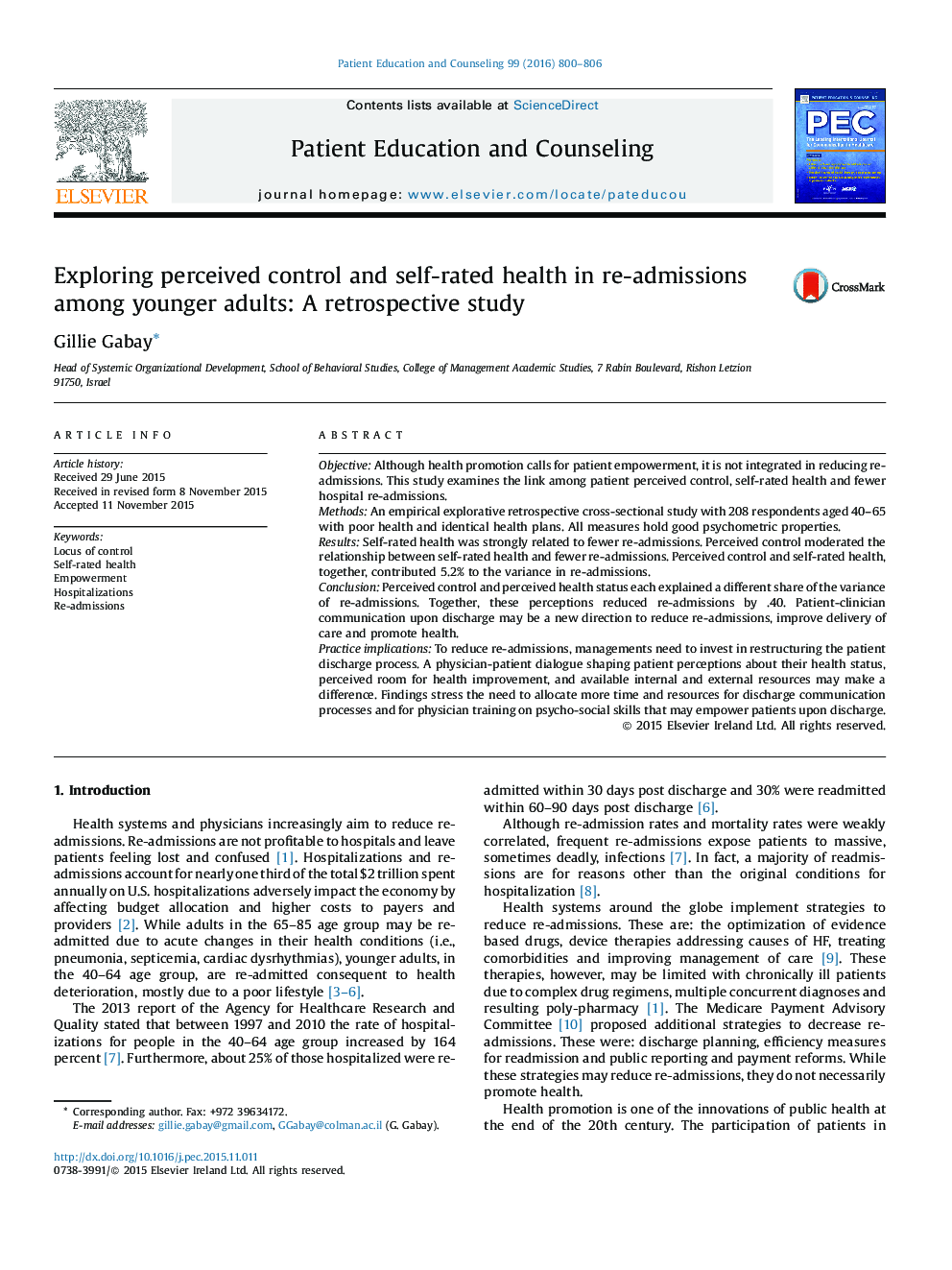| کد مقاله | کد نشریه | سال انتشار | مقاله انگلیسی | نسخه تمام متن |
|---|---|---|---|---|
| 6152754 | 1245963 | 2016 | 7 صفحه PDF | دانلود رایگان |
- Self-rated health and internal locus of control explained 5.2% of the variance in re-admissions among younger adults.
- Internal locus of control moderated the relationship between Self-rated health and re-admissions.
- Moderation effect reduced re-admissions by .40
ObjectiveAlthough health promotion calls for patient empowerment, it is not integrated in reducing re-admissions. This study examines the link among patient perceived control, self-rated health and fewer hospital re-admissions.MethodsAn empirical explorative retrospective cross-sectional study with 208 respondents aged 40-65 with poor health and identical health plans. All measures hold good psychometric properties.ResultsSelf-rated health was strongly related to fewer re-admissions. Perceived control moderated the relationship between self-rated health and fewer re-admissions. Perceived control and self-rated health, together, contributed 5.2% to the variance in re-admissions.ConclusionPerceived control and perceived health status each explained a different share of the variance of re-admissions. Together, these perceptions reduced re-admissions by .40. Patient-clinician communication upon discharge may be a new direction to reduce re-admissions, improve delivery of care and promote health.Practice implicationsTo reduce re-admissions, managements need to invest in restructuring the patient discharge process. A physician-patient dialogue shaping patient perceptions about their health status, perceived room for health improvement, and available internal and external resources may make a difference. Findings stress the need to allocate more time and resources for discharge communication processes and for physician training on psycho-social skills that may empower patients upon discharge.
Journal: Patient Education and Counseling - Volume 99, Issue 5, May 2016, Pages 800-806
